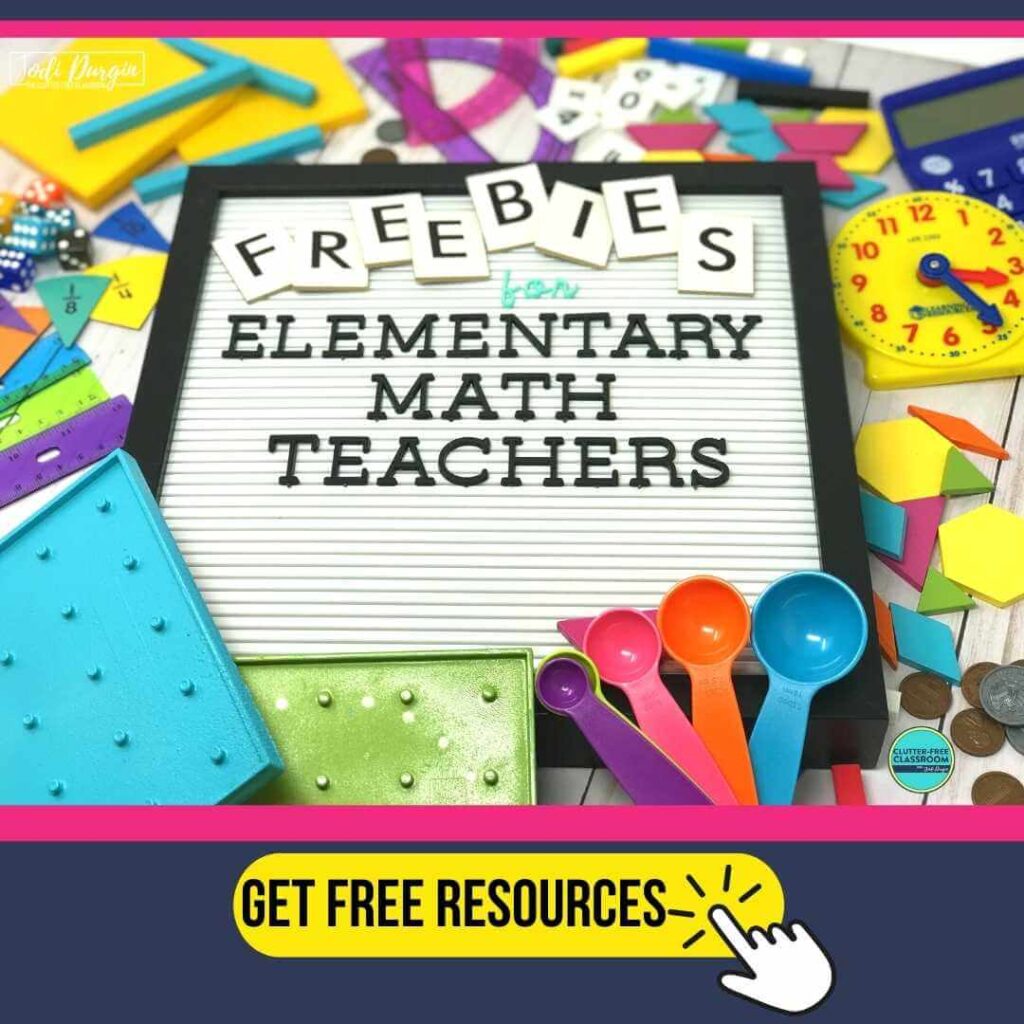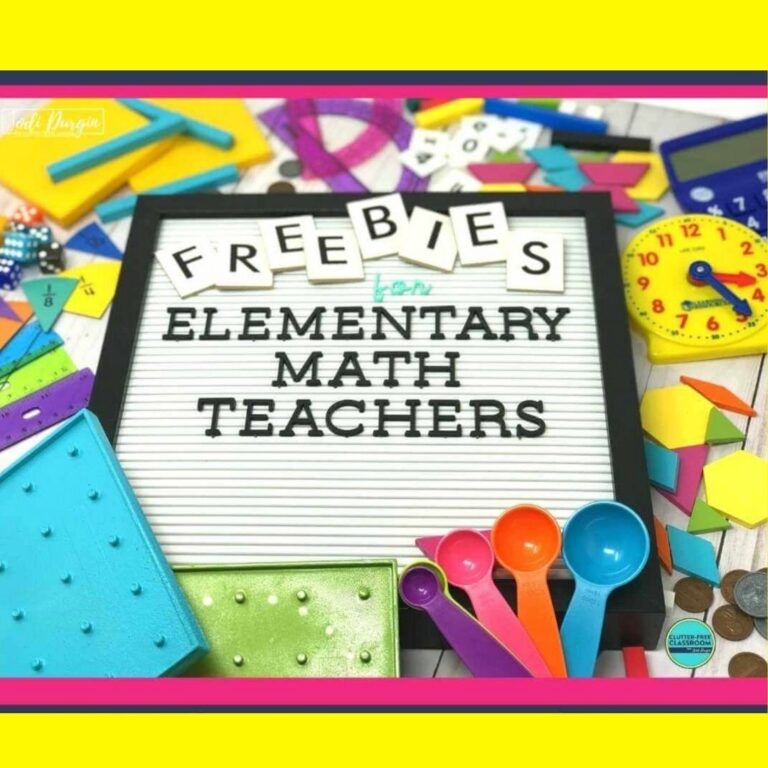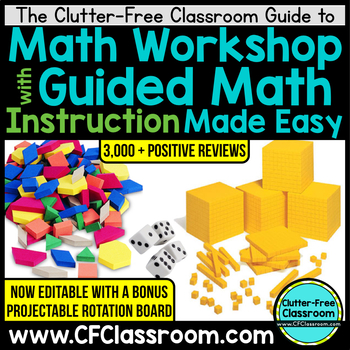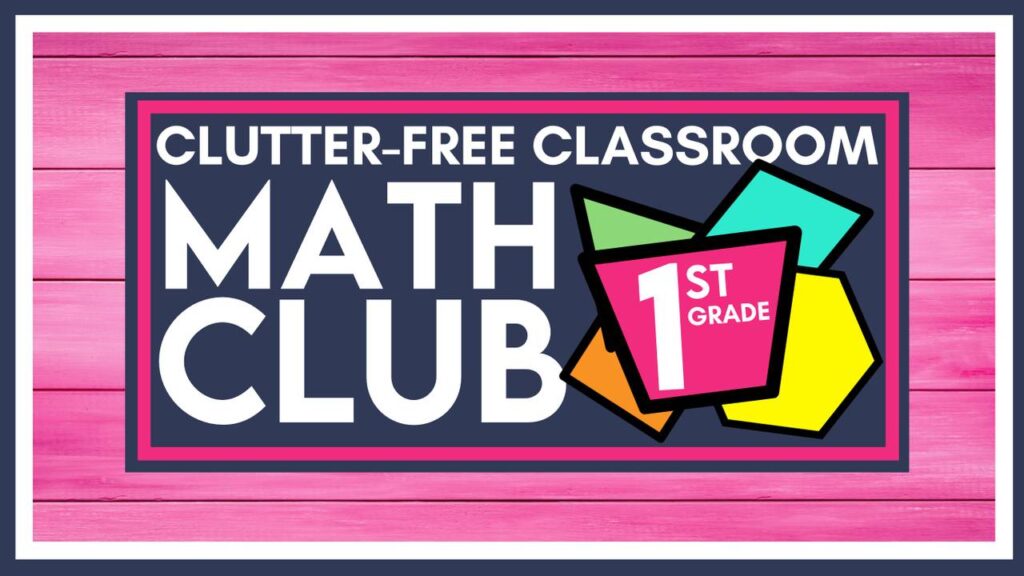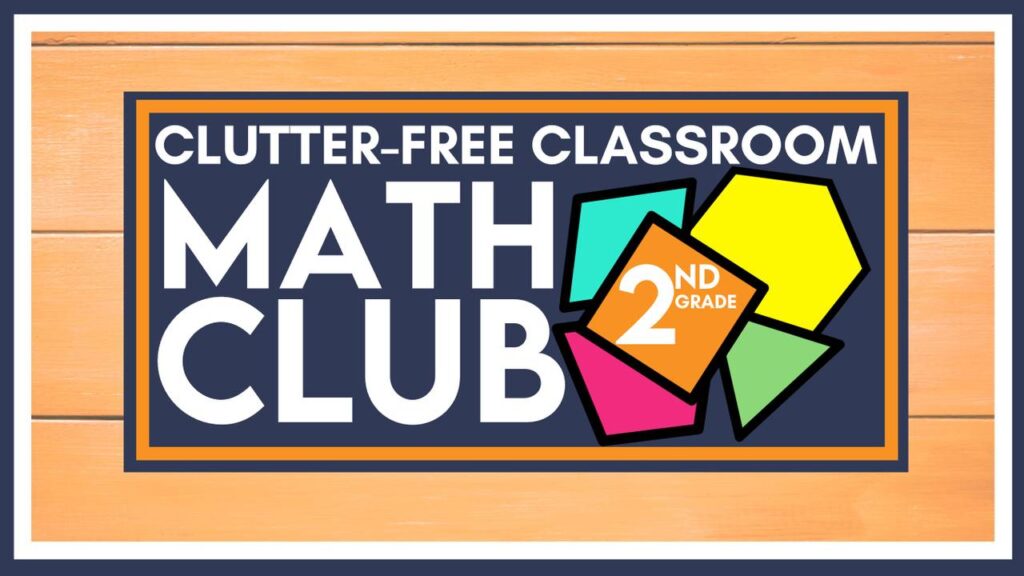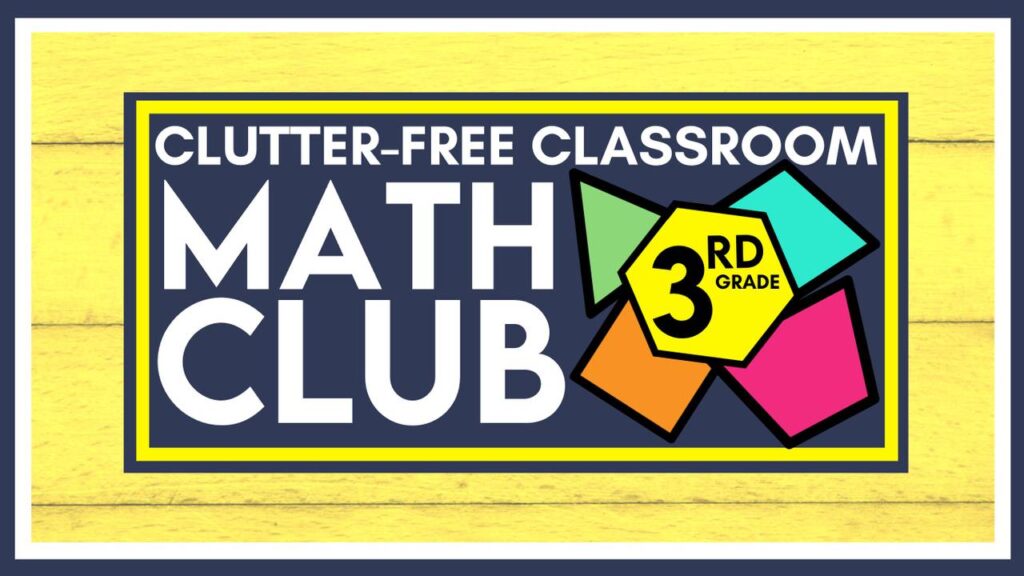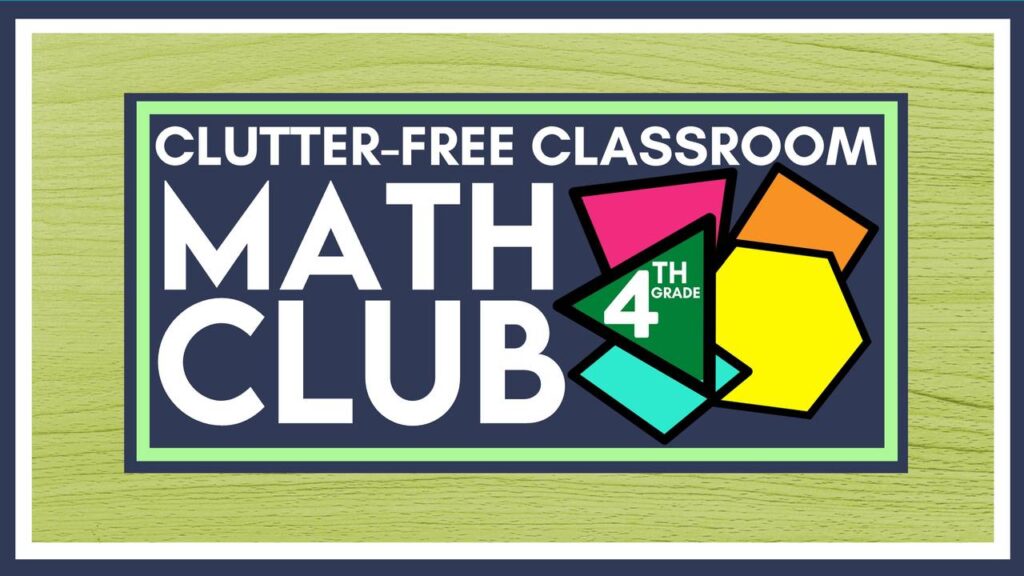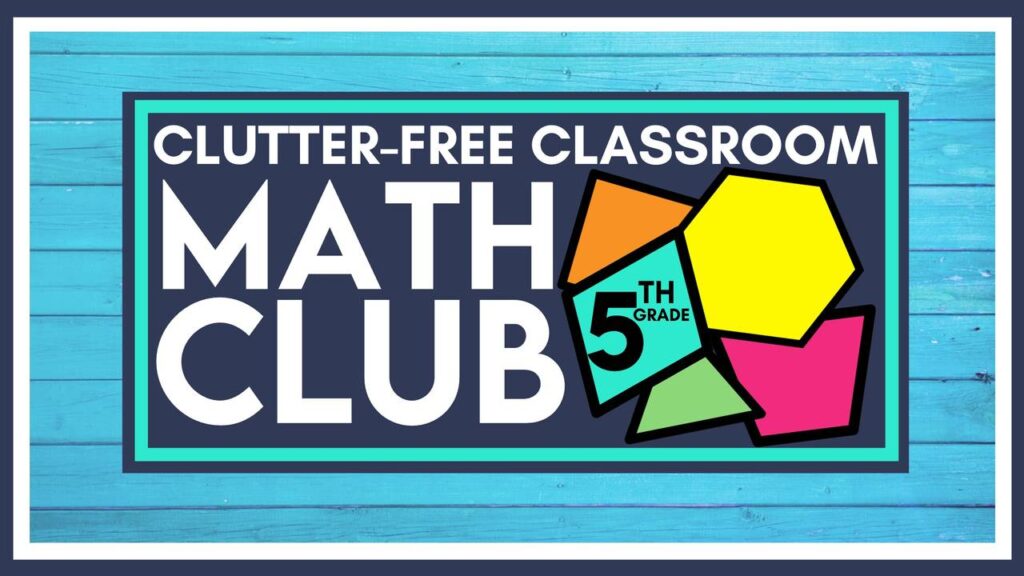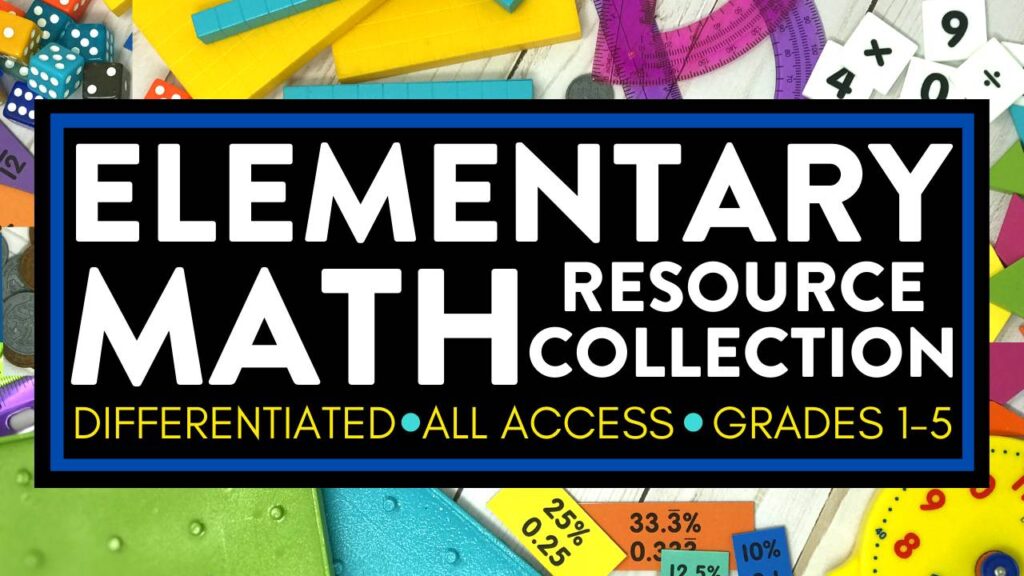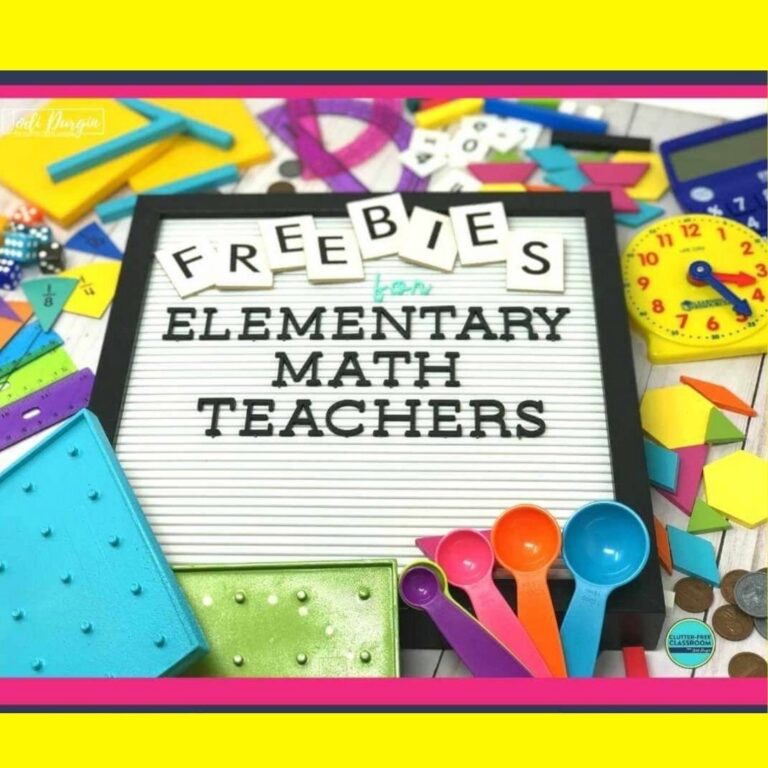Elementary math manipulatives are a key component of best practice math instruction. Your students need easy access to their math manipulatives during Guided Math Workshop. Elementary math manipulatives offer tons of benefits, which you can learn more about down below. It may feel overwhelming trying to figure out which ones your students need, which is why I included a list of the best math manipulatives for elementary teachers at the bottom of this post. Feel free to head straight to the bottom for that comprehensive list!
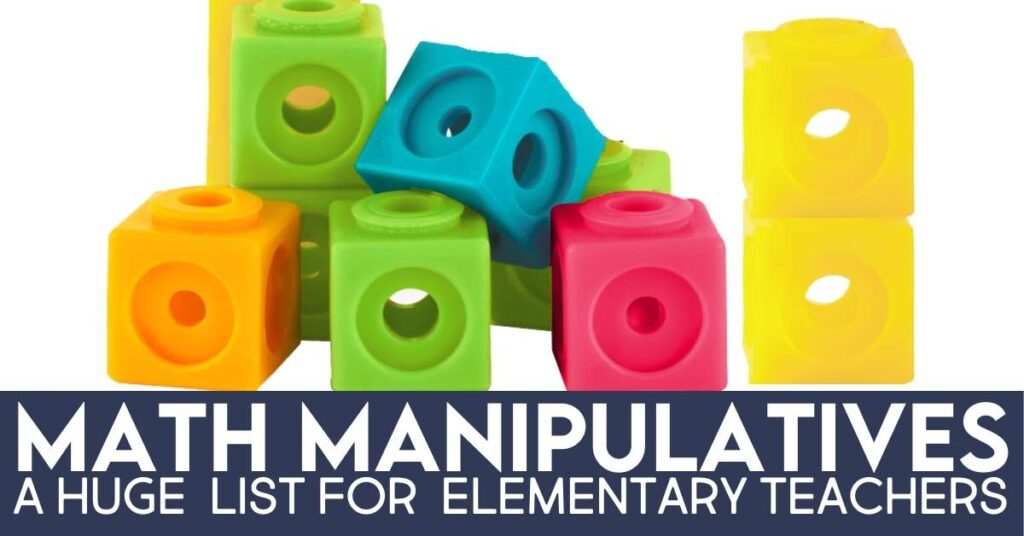
It doesn’t matter where you are on your teaching journey, this blog post includes everything teachers need to know about elementary math manipulatives including answers to the following questions:
- What are manipulatives in math?
- Can you give some quick examples of math manipulatives?
- What are the different types of math manipulatives?
- Why are math manipulatives important?
- How are math manipulatives used in the classroom?
- How do I organize and store my math manipulatives?
- Where can I buy math manipulatives for kids?
- How do I clean my math manipulatives?
- What are the best math manipulatives?
- Do you have any ideas for some inexpensive math manipulatives?
What are Math Manipulatives?
Math manipulatives are objects that students can use to better understand a math concept or skill. They can take many different forms, but they are all tools that students can use to help them represent and solve a math problem. Math manipulatives empower students to learn foundational and complex concepts and skills through developmentally appropriate hands-on learning experiences.
Elementary math manipulatives are often given to classroom teachers by their school district; however, this is not always the case. Sometimes teachers need to find, buy, make, or print their own math manipulatives to supplement what they are given. No matter the case, every elementary classroom must have an abundance of math manipulatives to support student learning.
What are Some Examples of Math Manipulatives?
Some examples of math manipulatives are base-ten blocks, unifix cubes, and coins. Check out the comprehensive list of elementary math manipulatives at the bottom of this blog post.
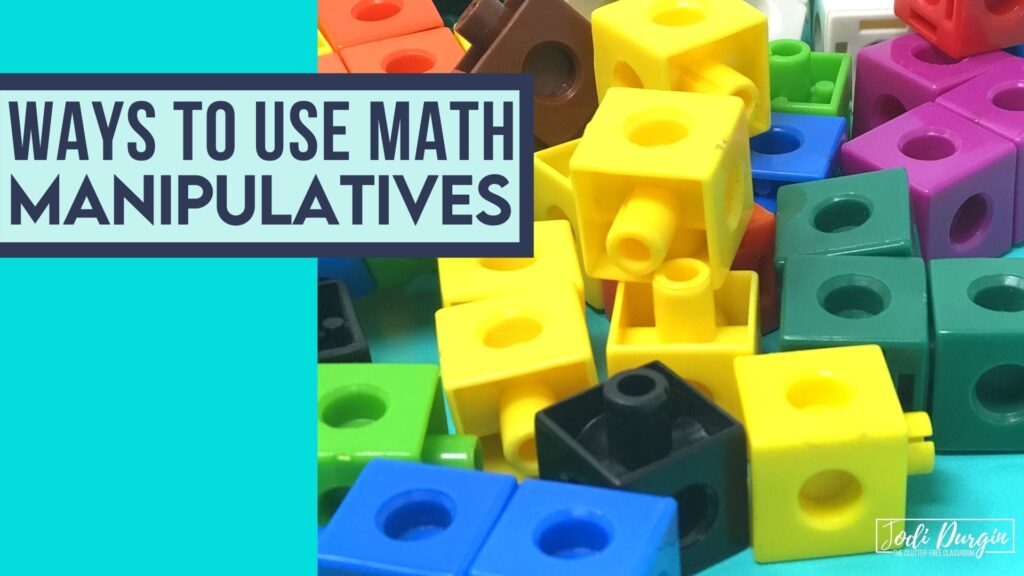
What are the Different Types of Math Manipulatives?
There are a lot of different kinds of elementary math manipulatives and they even come in many different forms. Each form has advantages and disadvantages, which I’ll briefly explain below. Here are the 5 most popular types of math manipulatives:
1. Virtual Math Manipulatives
Virtual math manipulatives are online and can be accessed using a desktop computer, laptop, iPad, or interactive white board. These are sometimes offered through curriculum programs or for free online. These are a great option, but should be accompanied with ones students can manipulate and hold in their hands. When students can physically touch manipulatives, it helps their brain make important connections.
2. Printable Math Manipulatives
You can buy and download sets online and then print, cut, and assemble them. Be sure to download my free printable math manipulatives! This is a cheap DIY option, so they are perfect for sending home with students to use for homework. This homemade choice often needs to be replaced each year because of the usual wear and tear they get from being used.
3. Plastic Math Manipulatives
This option is more expensive, but it is incredibly important for students to have access to a physical set of math manipulatives. The good news is that they last a very long time and can be cleaned easily.
4. Foam Math Manipulatives
This option is also expensive and doesn’t last as long as the plastic version, but they are a lot less noisy when students are using them compared to the plastic ones. When going over expectations for how to use these math manipulatives, be sure to emphasize that students are not allowed to poke holes in them with a pencil.
5. Magnetic Math Manipulatives
I recommend splurging on a set of these for yourself! They are definitely an investment, but are great for being displayed and used on your white board for modeling in your whole group area. They are great for a magnetic table top white board as well for your small Guided Math group instruction.
Are Manipulatives Important in Math?
I can’t emphasize enough the importance of manipulatives in math. In general, the benefits of manipulatives in education are truly limitless!
Elementary math manipulatives in the classroom support students in developing a conceptual understanding of how numbers work, as well as making sense of grade level math concepts and skills and how they connect to one another. When students can see, touch, and manipulate math concepts, they are able to make sense of them – no matter how abstract a concept can be. As a result, they make learning developmentally appropriate and engaging.
You may have heard about the concrete, pictorial, and abstract approach. It’s the idea that students must first have a concrete understanding of a concept or skill, which they develop through the use of math manipulatives. For example, they work with base ten blocks to help them add two-digit numbers together. Next, they can move onto the pictorial stage. Using the same example, they would draw the base ten blocks on a piece of paper to help them add the numbers. Lastly, they move onto the abstract stage. Again, using the same example, they add the numbers together using the standard algorithm. If students do not become proficient in the concrete phase, which is where the use of math manipulatives comes in, then they are missing a large part of their learning. This further exemplifies why elementary students need to be using manipulatives in math.
How are Math Manipulatives Used in the Classroom?
Elementary math manipulatives should be used throughout the whole Guided Math Workshop block, especially at the beginning of a unit. Here are some ideas for how to use math manipulatives during the different parts of the workshop:
Mini Lesson
- Magnetic math manipulatives are great for modeling how to solve problems on the whiteboard.
- When students are doing a solve and share, having their math tool kit with them will help them problem solve.
Centers
- Math Facts Center: Consider leaving counters on the table for students to use as needed.
- At Your Seat Center: Allow your students to access their tool kits as needed.
- Teacher’s Choice Center: Keep a set of all of the math manipulatives at your small group table for your Guided Math lesson.
- Hands On Center: Encourage your students to access their tool kits as needed.
Closing
- Allow students to access the tools around the room (e.g. number line, hundreds chart, and reference charts) to help them solve the math exit ticket or other formative assessment.
- Encourage students to use their tool kits.
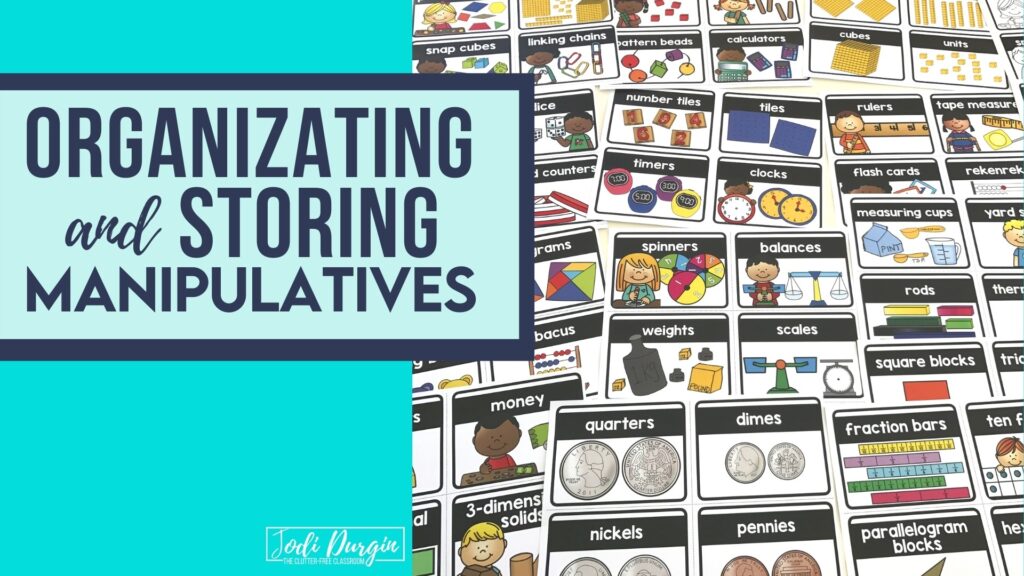
How Do I Organize and Store My Math Manipulatives?
I go into detail about how to organize math manipulatives in my Guided Math Workshop course (coming soon), but here are 3 things to consider when thinking about math manipulatives organization and storage:
- Come up with an organization and storage system before you go back to school so 1) your students can learn the procedures and routines at the start of the school year and 2) you are focused on maintaining rather than try to come up with systems when you are in the midst of a busy school year.
- Some math manipulatives need to be accessible year round, while others only need to be available part of the school year.
- Storing math manipulatives in clear containers or labeling containers makes it easy for you and your students to find what you are looking for. I offer a set of math manipulative labels in my Guided Math Workshop ebook.
Where Can I Buy Math Manipulatives?
Here’s where to buy math manipulatives for your elementary classroom:
- Amazon
- Lakeshore
- Hand2Mind
- EAI Education
- Oriental Trading
- Dollar Store
- Target
- Walmart
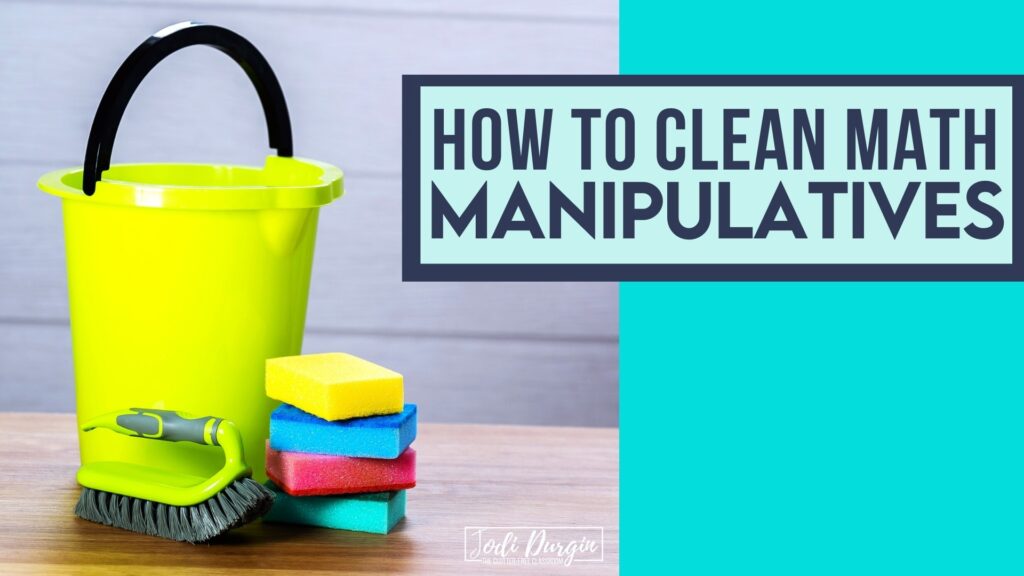
How Do I Clean My Math Manipulatives?
Here are 3 ideas for how to clean math manipulatives:
- Fill up your sink with water and dish soap and soak the math manipulatives in them.
- Put the math manipulatives in a mesh laundry bag and put the bag in the dishwasher.
- Ask for a parent volunteer to take them home and clean them.
What are the Best Math Manipulatives?
Below are the best elementary math manipulatives for teaching all of the 1st, 2nd, 3rd, 4th, and 5th grade math concepts and skills outlined by the Common Core standards (but it applies to TEKS and other state standards as well). This math manipulatives list is not organized by grade level, but you can look at the concepts listed below to see which ones apply to your grade level. It’s important to note that this list of math manipulatives apply to both general and special education students.
Operations and Algebraic Thinking
Addition and subtraction
- Ten frames
- Dominoes
- Dice
- Linking cubes
- Unifix cubes
- Rekenrek
- Base-ten blocks
- Two color counters
- Dinosaur counters
- Bear counters
- Bug counters
- Abacus
- Number tiles
Even and odd
- Two color counters
- Dinosaur counters
- Bear counters
- Bug counters
- Number tiles
Rows and columns
- Dinosaur counters
- Bear counters
- Bug counters
- Geoboards
Multiplication and division
- Dice
- Dinosaur counters
- Bear counters
- Bug counters
- Number tiles
Patterns
- Pattern blocks
- Dinosaur counters
- Bear counters
- Bug counters
- Two color counters
- Linking cubes
- Unifix cubes
- Number tiles
Number and Operations in Base Ten
Counting and skip counting
- Dinosaur counters
- Bear counters
- Bug counters
- Linking cubes
- Unifix cubes
- Number tiles
Place value
- Base-ten blocks
- Number tiles
- Place value frame
Decimals
- Decimal tiles
- Decimal frame
Number and Operations – Fractions
Fractions
- Fraction bars
- Fraction tiles
- Linking cubes
- Fraction squares
- Fraction circles
- Unifix cubes
Measurement and Data
Length
- Tape measurer
- Rulers
- Meter stick
- Yard stick
Time
- Clocks
- Elapsed time ruler
Graphing
- Cuisenaire rods
- Geoboards
- Coordinate plane dry erase mats
Money
- U.S. coins and bills
- Cash register
Volume
- Geoboards
- Liquid measurement set
Mass
- Balance scale
Area and perimeter
- Geoboards
- 1 inch tiles
Angles
- Protractor
- Angle circles
- Anglegs
- Geoboards
Geometry
2D shapes and 3D shapes
- Geometric shapes
- Pattern blocks
- Geoboards
Rows and columns
- Dinosaur counters
- Bear counters
- Bug counters
Lines
- Geoboards
- Rulers
Symmetry
- Tangrams
- Geoboards
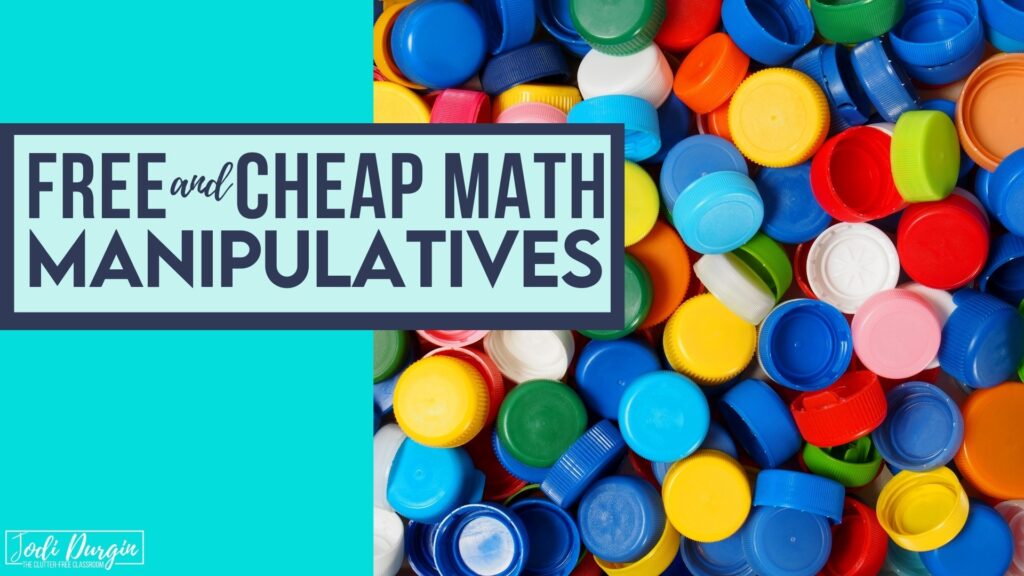
20 Free or Cheap Math Manipulative Ideas
Unfortunately, schools don’t always have the appropriate funding for hands on math manipulatives for elementary students and often cannot replace broken or lost manipulatives. As a result, we need to get creative!
Here’s a short list of free or cheap math manipulatives:
- Buttons
- Bottle caps
- Board game pieces
- String
- Pipe cleaners
- Popsicle sticks
- Beads
- Pom poms
- Tiny erasers
- Paper squares
- Beans
- Corn kernels
- Seashells
- Pinecones
- Rocks
- Marbles
- Goldfish
- Pretzels
- Uncooked spaghetti
- Free printable math manipulatives
Math Resources for 1st-5th Grade Teachers
If you need printable and digital math resources for your classroom, then check out my time and money-saving math collections below!
Try a Collection of our Math Resources for Free!
In closing, we hope this information about elementary math manipulatives is helpful and would love for you to try these math resources with your students. They offer elementary students opportunities to practice grade level concepts and skills in fun and engaging ways. You can download worksheets specific to your grade level (along with lots of other math freebies) in our free printable math resources bundle using this link: free printable math activities for elementary teachers.
Check out these other math resources!
- 1st Grade Math Resources
- 2nd Grade Math Resources
- 3rd Grade Math Resources
- 4th Grade Math Resources
- 5th Grade Math Resources
